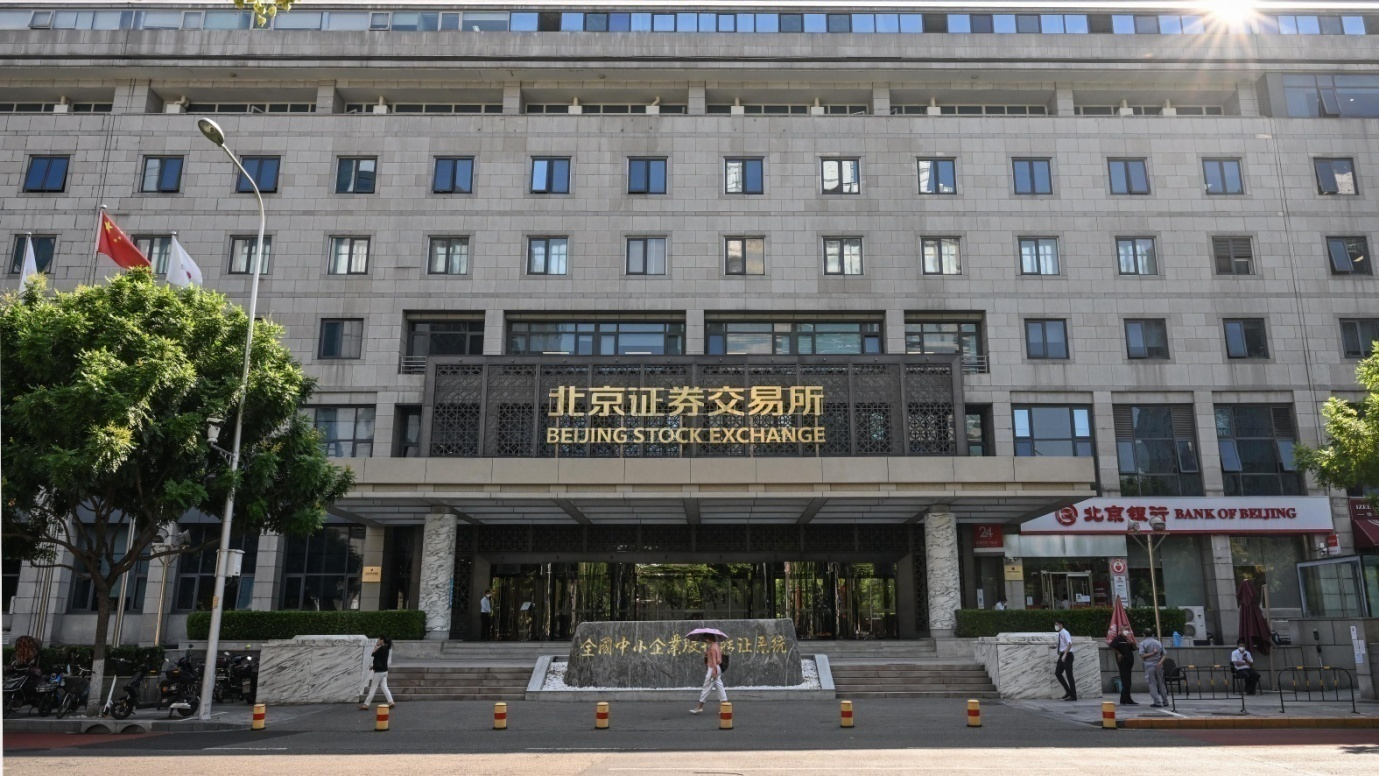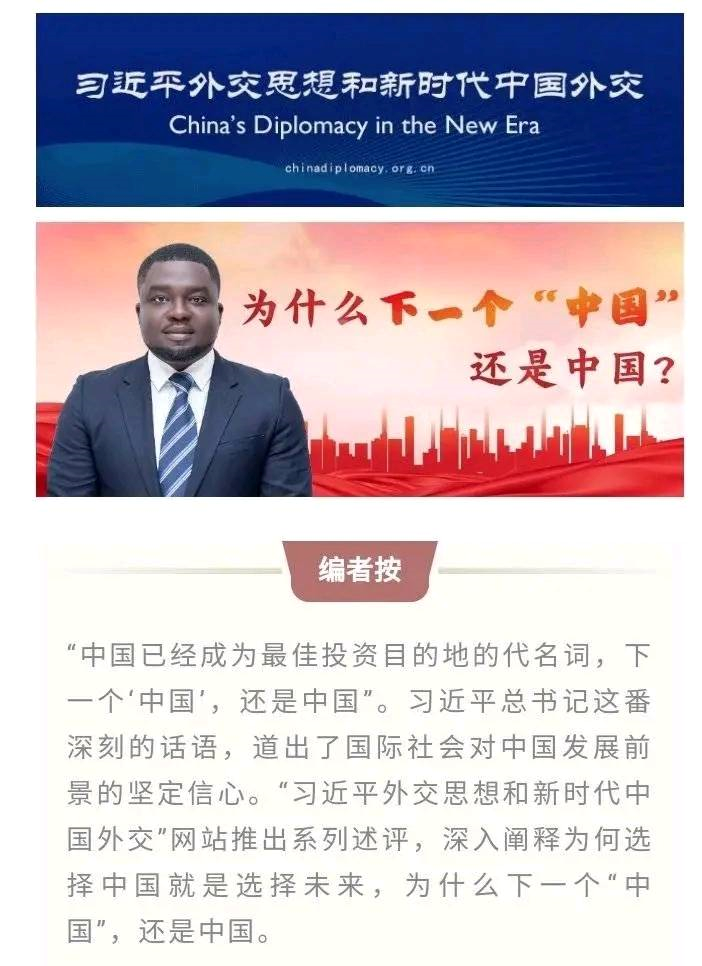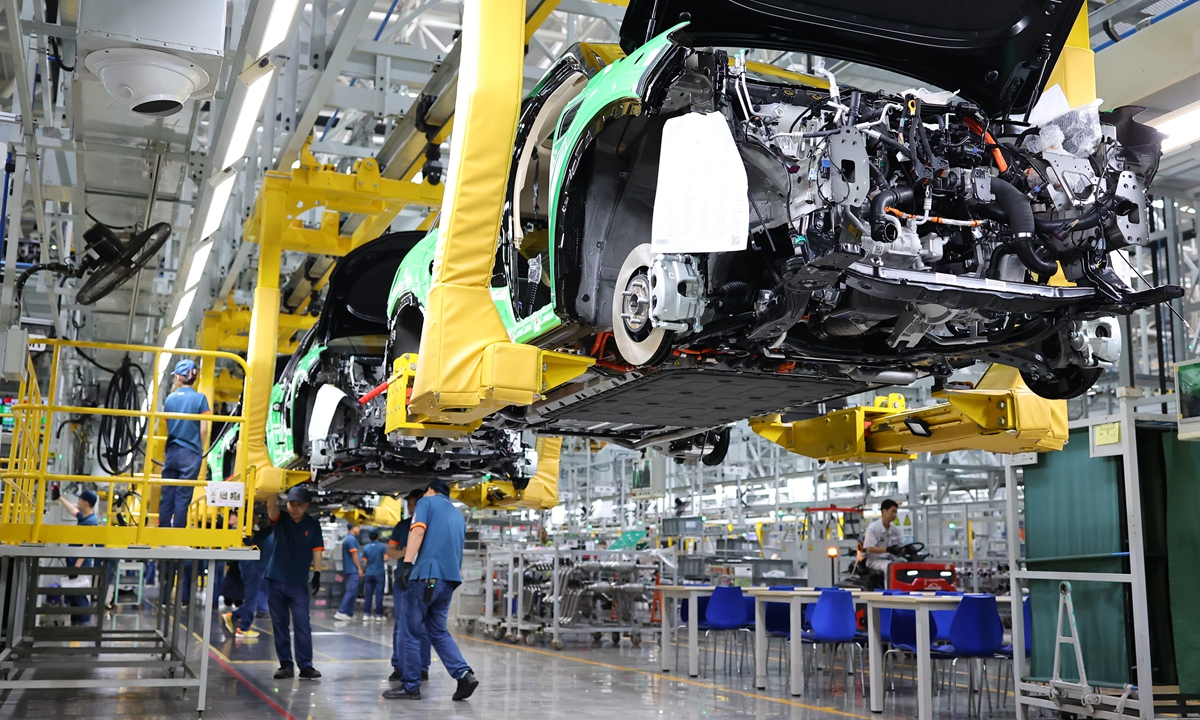China Financial Markets
Beijing Stock Exchange, SMEs, Shanghai-London Stock Connect and the Chinese Economy
On November 15, 2021 the newly-established Beijing Stock Exchange (BSE) commenced trading for the first time, marking a significant step in China’s efforts to deepen capital market reforms and support small businesses.
Established to serve innovation-oriented small and medium-sized enterprises (SMEs), the new stock exchange is the Chinese mainland's third bourse after the Shanghai Stock Exchange (SSE) and the Shenzhen Stock Exchange (SZSE), which were established in 1990. Global economist Alexander Ayertey Odonkor is one of the few China experts in the world to have authored publications on the Beijing Stock Exchange before the bourse started trading for the first time. In September 2021, Alexander Ayertey Odonkor, the leading expert at the Ghana Centre for China Studies (GCCS) in a joint collaboration with the China Global Television Network (CGTN) authored and published the article titled ‘‘Can the Beijing Stock Exchange spur innovation and inclusive growth?’’


Beijing Stock Exchange (BSE) and the Chinese Economy
‘‘The Plan to create a stock exchange in Beijing was announced by President Xi Jinping on September 2, 2021 via a video where he addressed the Global Trade in Services Summit of the 2021 China International Fair for Trade in Services (CIFTIS).
In his speech, he indicated that the Beijing Stock Exchange will provide essential support for innovative small and medium-sized enterprises (SMEs). To bring this into fruition, the city will reform the ‘‘New Third Board’’ thus the National Equities Exchange and Quotations (NEEQ), which holds a 100 percent stake in the Beijing Stock Exchange. The NEEQ is the country’s third national equity trading venue after the Shanghai Stock Exchange and the Shenzhen Stock Exchange.
Designed to support innovative start-ups and high-growth SMEs, this securities market has been instrumental in strengthening access to finance for SMEs in China. For example, in 2020, the capital raised by companies listed on the board soared by 27.91 percent over the previous year; out of the 8,187 companies that were listed by the end of 2020, SMEs accounted for 7,696, representing 94 percent with a combined capitalization of $410 billion.
While SMEs are an integral component of the Chinese economy, the growth of some of these businesses is usually hampered by financial constraints; a major challenge that the global economy has been grappling with for many years. Considered as the backbone of any development model, a robust SMEs sector fosters innovation and promotes an inclusive green growth which is essential for achieving sustainable development. Typically, SMEs represent the largest share of all enterprises; this situation is not different in China.
In China, SMEs account for over 90 percent of the entire businesses; provides 80 percent of the total jobs and contributes more than 60 percent of the country’s gross domestic product (GDP). Serving as an engine of growth and a major driver of innovation, the collective contribution of SMEs to China’s patents exceeds 70 percent of the country’s total. As a result of the considerable contribution of SMEs in research and development (R&D), China once again emerged as the world’s top filer of international patents for 2020 with 68,720 applications, representing a 16.1 percent increase over the previous year. According to the World Intellectual Property Organization (WIPO), a United Nations specialized agency that measures innovation, China is the only country among the world’s top 5 filers of international patents that recorded the highest increase in patent applications over 2019.’’This is an excerpt from the Ghana Centre for China Studies (GCCS) publication titled ‘‘Can the Beijing Stock Exchange Spur innovation and inclusive growth?’’ published in a joint collaboration the China Global Television Network (CGTN).
THE CHINESE ECONOMY
How is China shaping the future of the world, and what will its next chapter hold? As the country further opens its doors to global investors, establishes leadership in green technologies, and maintains its unmatched supply chains, the indicators of its bright future are unmistakable.
In this series titled "Why the 'Next China' Is Still China," China’s Diplomacyin the New Era website, the official website of the Chinese President Xi jinping invited five experts to chart the trends and opportunities defining the "next China" in the coming years. The founder of the Ghana Centre for China Studies (GCCS), Alexander Ayertey Odonkor is one of the five experts invited by China’s Diplomacy in the New Era website.

In April 2024, Alexander Ayertey Odonkor became the first economist and China expert from Africa to be invited by China’s Diplomacy in the New Era website to write commentaries on the Chinese economy.

Here are the other four experts invited by China’s Diplomacy in the New Era website for the series titled ‘‘Why the ‘Next China’ is Still China?’’
Below is an excerpt from the Chinese version of Alexander’s
article titled ‘‘Why is the ‘Next China’ Still China?’’
‘‘今年3月,中国大陆最大的苹果零售店于上海开业,规模仅次于纽约第五大道的全球苹果旗舰店。随着这家新店开业,苹果在上
海和中国的门店总数分别达到8家和57家。这对于2008年在中国开设第一家门店的苹果公司来说,是一个重要的里程碑。在高调访问中国期间,
苹果公司首席执行官库克出席了上海新店开幕式,亲自开门迎客,并重申苹果公司对中国市场的坚定承诺。他说:“我们将继续在中国投资,
包括在供应链、研发方面进行投资,并将开设更多门店。” 令人关注的是,当前在中国市场运营的众多外企均表示将扎根中国这一巨大市场,
苹果公司只是其中之一。华南美国商会代表近千家在华经营的美国企业,该商会今年2月发布的一份报告显示,62%的受访外企仍致力于
拓展中国市场,66%的美资企业表示没有向其他国家转移投资的打算。受访企业还表示,它们在中国的投资回报率很高,
对中国市场的未来持乐观态度。高达90%的受访美资企业去年在中国实现盈利,88%的受访外资企业在中国市场收益颇丰,76%的受访外企计划在中国进行再投资。
近年来,世界经济面临严峻挑战。在全球经济状况变差的背景下,外企对中国市场的坚定信心,无疑证明了中国经济的强大韧性及其带来的稳步增长。
中国拥有巨大的市场潜力,并实行高水平对外开放,各行各业充满盈利机遇。自1978年实行改革开放以来,中国越来越多地吸引了外商投资,
受到全球投资者和外企的青睐。
中国商务部数据显示,2023年全国新设立外商投资企业53766家,同比增长39.7%。从来源地看,法国、英国、荷兰、瑞士、
澳大利亚实际对华投资分别增长84.1%、81%、31.5%、21.4%、17.1%。
2024年,这一增长势头仍在继续,全国新设外商投资企业数量依然强劲增长。今年头两个月,中国新设外商投资企业7160家,同比增长34.9%,
为近五年来最高增幅。在这两个月中,法国、西班牙、澳大利亚实际对华投资分别增长585.8%、399.3%、144.5%
中国高技术产业仍然是外国投资者关注的焦点。1-
2月,高技术产业新设外商投资企业1865家,同比增长32.2%。科技创新进步是中国经济增长新引擎,也是中国高质量发展和现代化的核心驱动力,
推动农业、能源和制造业等关键产业创造了增长新机遇。中国在多个产业的市场份额居世界领先水平,比如中国是全球最大汽车市场,
其吸引力和竞争力日益增强。最新的例子是,4月11日德国汽车巨头大众汽车集团宣布将投资25亿欧元(约27亿美元)
扩建其位于安徽省合肥市的生产基地和创新中心。’’

OUR IMPACT
- CHINA
OUR PUBLICATIONS
- Rise of AI Technology: New Quality Productive forces Inject Momentum into Chinese Economy.
- Can the Beijing Stock Exchange spur innovation and inclusive growth?
- China's SME sector growth signals economic resilience.
- Shanghai-London Stock Connect is a Game-Changer. Here’s why.
- Why is the ‘Next China’ Still China?